| |
English Pronunciation
& English
Spelling Rules
© 2007-present, by Leon of Leon's Planet
Phonics,
Phonetics, Phonemics,
Phonology, & Prosody
|
Dear Kids,
|

Look for me!
When you see me, you can listen to the sounds.
|
Dear Parents and Teachers:
It is helpful to review the
content of this page multiple times (repetition is key). You may freely
(and free of charge) download all the audio files on this page and freely use
them to teach your child or children.
|
Dear Adults,
Leon's Planet could use your support. You can do
that in several ways:
(1) You can like/share this page on any of your social media
pages. (That in and of itself would be a great help.)
(2) You can donate via PayPal.
<--- Click on link. I use PayPal,
because it is the safest way to purchase or give money on the net.
PayPal keeps all your personal credit card information secret from the recipient, and you
don't have to have a PayPal account to donate money to Leon's Planet's
PayPal account.
Dear Webmasters:
All content on this page and website
is original content, produced by Leon of Leon's Planet. You may
use it freely for educational
purposes, but be sure to give credit where credit is due, and please
link back to my site, if possible.
|
INTRODUCTION
to the nomenclature (for teachers):
| This... |
...is... |
...for... |

|
Q: What's the difference between 'phonics', 'phonetics',
'phonemics' and 'phonology'?
A:
Here are the
definitions:
Phonics: the science that deals with the
sound of the
written symbols of a language, and often the teaching thereof
Phonetics:
[Education] the science that deals with the
segmental
sounds of the spoken language phoneme
is the smallest unit of sound of a language]
Phonemics: [Linguistics]
the science of phonemes, and their relationships (i.e. changes based upon
collocation).
"functioning as singular : that aspect of linguistics concerned with the classification, analysis, interrelation, and environmental changes of the phonemes of a language"
(Collins-Cobuild
Online Dictionary)
Prosodic Features:
the 'suprasegmental'
sounds (features) of a spoken language (i.e., intonation and voice quality)
[ Teach
Yourself Intonation of English (click
here) ]
Phonology:
Phonetics / Phonemics / Phonics / Prosodic
Features ALL together; Study of sounds in languages.
|
Kids, keep scrolling down.

 |
& |
 |
|
|
North American Phonics
by Leon © 2007-present
|
| First of all, you need to know what the consonants and
vowels are. English Vowels: a,e,i,o,u,
and sometimes y, w
When "y"
or "w" appear at the
beginning of a word or syllable, they are NOT vowels
English Consonants: b, c, d, f, g,
h, j, k, l, m, n, p, q, r, s, t, v, x, z, (and w & y if occurring at
the beginning of a word or syllable)
| W |
Y |
| Consonant |
Vowel |
Consonant |
Vowel |
will
would
twist |
cow
crown
owe |
yak
yes
you |
boy
cycle
puppy |
|
|
Vowel Sounds
|
|
(Phonics with Audio)
(IPA = International Phonetic Alphabet) (APA =
American Phonetic Alphabet)
| Short Vowel |
IPA |
APA |
Long Vowel |
IPA |
APA |
| a |
æ |
 |
a |
ei |
 |
| e |
e |
 |
e |
i: |
 |
| i
& y |
I |
 |
i
& y |
ai |
 |
| o |
 |
 |
o |
ou |
 |
| u |
 |
 |
u |
j u: |

|

Click on me to download and listen to Mr Leon.
|

Click on me to download and listen to Mr Leon.
|
Irregular (strange) Vowel Sounds
APA = American Phonetic Alphabet
IPA = International Phonetic Alphabet
NOTE: The schwa / /
sound only appears
in unstressed syllables. /
sound only appears
in unstressed syllables.
NOTE: The short u sound is almost the same as the
schwa sound.
NOTE: The ä sound is almost the same as the American
short "o" sound.
|
|
English
Spelling Rules
|
Rule #1: CVC rule.
[CVC =
Consonant-Vowel-Consonant]
The vowel is short! (99% true)
[in CVCC the vowel is also short] (99% true)
Examples: rat, hen,
sit, not, cut

 (click to download audio file)
(click to download audio file)
Rule #2: CVC + silent “e” rule
[Mr. Silent "e" says, "Change
your sound!"]
The vowel is long! (99% true)
Example: rate,
here, site,
note, cute

 (click to download audio file)
(click to download audio file)
Rule #3: hard “c” / soft “c” rule
3a) Hard "C"
: When c+a OR c+o OR c+u exists, then "c" has the /k/ sound.
(It doesn't matter if the vowel is short
or long).
Examples: The con man can
put a cane into a cone
and a cub into a cube.

 3b)
Soft "C" : When c+e OR c+i OR c+y exists, then
"c" has the /s/ sound.
(It doesn't matter if the vowel is
short or long). Examples: The city
center has a circle.
More Ex.): I will recite the cyclical
cycles of circular
cells. 

Rule #4: “k” instead of “c” rule
K instead of "C" : Why? Because "c"
changes it's sound when followed by e, i, and y, we needed a new letter
in English.
When we need a hard "c" sound + e,i,y, then we
have to use "k". It doesn't matter if the vowel is short
or long. Examples: Kelly
keeps kissing
the kite, while Kym
keeps kissing Kyle. More
Ex.): Kyle the king
is kind, even though he is only a kid. What
about K + a, o, u?!!! Words that have k + a,o,u
are "loan words" from other languages. Examples: kangaroo
(Aus.Aboriginal word),
Korea (Korean word),
kung fu (Chinese word)
Rule #5: hard “g” / soft “g” rule
3a) Hard "G"
: When g+a OR g+o OR g+u exists, then "g" has the
/g/ sound.
(It doesn't matter if the vowel is short
or long).
Examples: The bad guy got
a gun and put a gag
on the gal.
More Ex.): The good guy
gave the bad guy
a gallon of gas
in his galoshes.

 3b)
Soft "G" : When g+e OR g+i OR g+y exists, then
"g" has the /j/ sound.
(It doesn't matter if the vowel is
short or long).
Examples: The gentle gypsy
put gel in her hair, then gyrated
her hips.
More Ex.): I like ginseng and ginger.


Exceptions: give, gill, get, geyser, girl
Why?
Because "C" has a friend named, "K", but "G"
has nobody, nobody, but you!
Ha, ha, ha; I crack myself up!
Rule #6: double consonant rule
Explanation: There's a SHORT VOWEL before a double consonant.
(99% TRUE!!!)
Examples
(short vowels) |
Non-examples
(long vowels) |
Listen
(click on pic) |
| planner |
planer |

|
| dinner |
diner |
| hopping |
hoping |
| supper |
super |
NOTE: there are many exceptions to this rule.
SOME EXCEPTIONS: caller, stalling, falling, etc. ALSO:
Occasionally, there may be a single consonant after a short vowel
sound. It drives me crazy.
SOME EXAMPLES: elephant,
Rule #7: CV rule
Explanation: If the word ends in a vowel, it is usually long.
Examples: he, me, we, hi, go, no, so,
flu, Katmandu, and Timbuktu. Some
super weird exceptions: to, do, ma, pa, ska, bla, bla, bla
Rule #8: final “a” = schwa sound ( ) )
Examples:
Linda
pizza
Zebra
Korea
India
America
Rule #9: Change the 'y' to 'i'
and add 'es'/'er'/'est'
Explanation: If there is a vowel
before the 'y', as in 'day', just add 's' (days). Examples:
day-days, play-plays, way-ways, toy-toys, boy-boys
Explanation: If there is a consonant
before the 'y', as in 'try', change the 'y' to 'i' and add 'es'. Examples:
try-tries, cry-cries, dry-dries, fly-flies, sky-skies, country-countries Explanation:
Change the 'y' to 'i' and add 'er' or 'est' Examples:
happy-happier-happiest; funny-funnier-funniest;
pretty-prettier-prettiest; dirty-dirtier-dirtiest
Rule #10: Change the 'f' to 'v'
and add 'es'
Explanation: If there is an 'f' at the
end of a word, we make it plural by changing the 'f' to 'v' and add 'es'. Examples:
calf-calves, half-halves, wolf-wolves, wife-wives, knife-knives Rule
#11: Change the 'y' to 'i' and add 'ed' or 'ing' Explanation:
If there is a vowel before the 'y', just add 'ed' or 'ing'. Examples:
play-played-playing, destroy-destroyed-destroying Explanation:
If there isn't a vowel before the 'y', change the 'y' to 'i' & add
'ed' (but not for 'ing'). Examples:
dry-dried-drying, cry-cried-crying, try-tried-trying Exceptions:
fly-flew-flying Rule
#12: Change the 'ie' to 'y' when adding 'ing' Explanation:
If the verb ends in 'ie', change the 'ie' to 'y' when adding 'ing'. Examples:
die-died-dying,
lie-lied-lying (if 'lie' = to tell a falsehood)
tie-tied-tying Exceptions:
lie-lay-lain (to put one's self in horizontal position on the floor or
ground) |
|
Consonants
|
Part 2: Digraphs (Ch & Th)
The symbols that we use for English today are from the Roman language. Yet English contains words from Old English, Middle English, German, Latin, Greek, Arabic, Italian, and French. This makes English pronunciation quite complicated. Of course, all of Europe uses Roman symbols, but the Romanization of each language is quite different from one country to another. Sometimes digraphs were invented to represent consonant sounds, which don’t exist in Latin. For example, Latin doesn’t have the
/ / sound. In English, we represent this sound with the digraph “Sh.” In French, the same sound is represented with the digraph “Ch.” Sometimes digraphs were invented to distinguish the origin of the word. For example, the Greek letter
/x/ (spelled:
‘chi’, pronounced, /kai/) is transliterated as the digraph “Ch,” but it sounds like /k/. Why did they do this? I don’t know. It really makes things confusing. So in English, the digraph “Ch” has three sounds, depending on the origin of the word. See table below. / sound. In English, we represent this sound with the digraph “Sh.” In French, the same sound is represented with the digraph “Ch.” Sometimes digraphs were invented to distinguish the origin of the word. For example, the Greek letter
/x/ (spelled:
‘chi’, pronounced, /kai/) is transliterated as the digraph “Ch,” but it sounds like /k/. Why did they do this? I don’t know. It really makes things confusing. So in English, the digraph “Ch” has three sounds, depending on the origin of the word. See table below.
1. “Ch” Rule(s)
Original English words, which begin with "ch" are
pronounced like " " "
Greek-English words, which begin with "ch" are pronounced
like a "k".
French-English words, which begin with "ch" are pronounced
like " " "
Examples:
Pure-English
Words |
Greek-English
Words |
French-English
Words |
"ch" = / / / |
"ch" = /k/ |
"ch" = / / / |
| champion |
ache |
champagne (wine) |
| chalk |
stomach |
chauffeur (driver) |
| cherry |
chemistry |
Cheri
(name) |
| chip |
chiropractor |
chic (cool) |
| chop |
chorus / choir |
Chopin
(name) |
| church |
Christmas |
- |
| - |
chrome |
- |
| - |
chronicle |
- |
NOTE: there are some exceptions, like the English word
"channel" is from French, but it has the pure-English
pronunciation.
2. “Th” Rule(s)
There are TWO "th" sounds: /  / & /
/ & /  /.
/.
Notice that the latter symbol looks much like a
"d". That's because it sounds much like a "d",
and many non-native English speakers (or Pidgin/Creole speakers), will
substitute the "d" sound for the  sound. The former symbol looks unlike any other alphabetical
letter in English (or Roman), and that's because it is unlike any other
sound in English (or Roman). Since the
sound. The former symbol looks unlike any other alphabetical
letter in English (or Roman), and that's because it is unlike any other
sound in English (or Roman). Since the  symbol is a Greek symbol, many words with that sound are from Greek (but
not all).
symbol is a Greek symbol, many words with that sound are from Greek (but
not all).
Look at the diagrams (below) of the articulations of  , ,
 , and d... , and d...
In the first diagram, we see that the tongue is
clenched tightly between the teeth, blocking all air from going in or
out. Then, the tongue is drawn in very quickly, and by the laws of
physics, air must go out, but also combined the intercostal muscles in
the chest contracting, a very strong, almost plosive wind comes out of
the mouth. (some say it is a fricative, but I firmly believe it to
be a plosive).
In the second diagram, the tongue is pressed up
against the back of the upper teeth and alveolar ridge. Like the  ,
the ,
the  initial articulation blocks the
would-be hole between the open teeth, not allowing any air to go in or
out. BUT, unlike the initial articulation blocks the
would-be hole between the open teeth, not allowing any air to go in or
out. BUT, unlike the  , the , the  movement forces the tongue out of the mouth between the teeth (slowly),
and then slowly the tongue goes back in and down. Because of the
slow movement of the tongue, it is labeled a fricative.
movement forces the tongue out of the mouth between the teeth (slowly),
and then slowly the tongue goes back in and down. Because of the
slow movement of the tongue, it is labeled a fricative.
In the third diagram, we see that the "d"
movement is almost identical to the  movement, except that the tongue doesn't actually leave the mouth.
The initial articulations are different as well, but not far apart,
which would account for the similarity in sound.
movement, except that the tongue doesn't actually leave the mouth.
The initial articulations are different as well, but not far apart,
which would account for the similarity in sound.
In fact, many native speakers will use the
"d" sound in place of the  sound, when trying to be funny.
sound, when trying to be funny.
Example: "Duh Bears!" (Chicago
Bears are a football team, and Chicagoans will often call them "Duh
Bears!").
Also, many non-native English speaker, which speak a
Creole of English, like in Jamaica, will use the "d" sound in
place of the  ; AND, they will
use the "t" sound in place of the ; AND, they will
use the "t" sound in place of the  sound. This works well, because both "d" and
sound. This works well, because both "d" and  are fricatives, and both "t" and
are fricatives, and both "t" and  are plosives.
are plosives.
|
|
Vowel Teams
|
| Part 3: Vowel Teams (or Vowel Strings) with more
than 1 sound
'ea' (short e sound); bread, breath, dead, death, head, lead,
read, wealth,
'ea' (long e sound); bead, beat, breathe, eat, feat,
heat, lead, leak, meat, neat, read, treat, weak, wheat
'ea' (long a sound); break, great, steak
'ew' ( /u:/ ); dew, blew, chew, crew, flew, grew, knew, lewd,
mew, stew,
'ew' ( /ju:/ ); few, new, pew
'oo' (short sound / /);
book, foot, good, hood, hook, look, nook, rook, soot, took, wood, /);
book, foot, good, hood, hook, look, nook, rook, soot, took, wood,
'oo' ( /u:/ ); balloon, boot, cartoon, goose, loose, moose, loop,
loot, moon, noon, poop, root, stoop, toon, toot,
'oo' (schwa sound / /);
blood, flood /);
blood, flood
'oo' (long o sound); boor, floor, door, moor
'ou' ('au' "short" sound); bough, grouse, house,
louse, mouse, plough
'ou' ('ou' "long" sound); though
'ou' (schwa sound / /);
enough, rough, tough /);
enough, rough, tough
'ow' ('au' "short" sound); brown, cow, how, now, wow
'ow' ('ou' "long" sound); blow, flow, grow, know,
low, sow, tow,
|
If you liked this page, you'll get a Hoot out
of my Tongue Twisters page.
It's so fun! (even for adults). Just click on the image below.
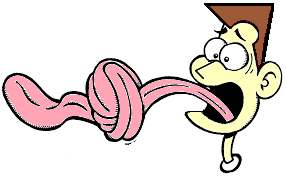
Parents and Adults,
If you would, please help support Leon's Planet.

Click on the pic above to learn how you can help.
| |

English |
|

Spanish
|

Korean |

Mongolian |

Chinese |
|
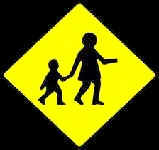
Parents of
Homeschool
|
|

Halloween
|
|

Thanksgiving
|
|
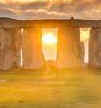
Winter Solstice
|
|

Christmas
|
|

New Years
|
|
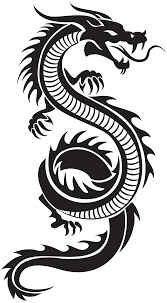
Chinese Lunar
New Year
|
|

Valentine's
|
|

|
|
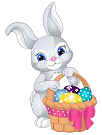
Easter
|
|

All About
Dr. Seuss
|
|
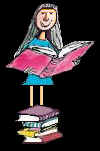
Roald Dahl
|
|
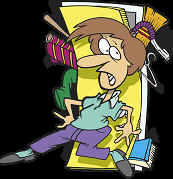
Prepper's
Pen |
|

Ways to
Help
Leon's Planet
|
|